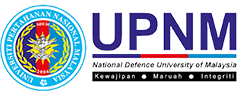Security Perception of Sabah’s Maritime Community Against Threats
Keywords:
Op Pasir; Security; Threat perceptionAbstract
Territorial security has always been a concerned of sovereign states especially those with long stretches of coastal area. In Sabah, with a 1,600km coastline to cover, Malaysia’s security forces have their work cut out for them. Codenamed Op Pasir (short for Pandanan and Sipadan Island Resorts operation), the concerted efforts of the three services of the armed forces (and other securityrelated agencies) were put in place since 2000 to address external threats following the kidnapping incidents at Pandanan and Sipadan islands. This paper highlights the result of a joint-study conducted in 2012 to determine security perception amongst the maritime community in the east coast of Sabah since then. The exploratory study examines the perception covering four areas – threats and
general security, politics, economic as well as social. Data were collected using both qualitative and quantitative methods. Interviews were held with and questionnaires were distributed to important stakeholders and islanders off the coast of Sabah. The study revealed that from the security perspective most of the respondents felt safe and confident with the presence of the security forces and
agencies. However, there were those who were still uneasy about the security of the area concerning issues such as sea robberies, smuggling and undocumented immigrants. This group constituted about 30% of the respondents registering high threat index. Politically, the presence of the illegal immigrants, undocumented and stateless people as well as sea communities such as the Suluk, who come and go, posed a big headache to the local leaders and the security agencies. Problems emerging from the above situation also became a challenge to local authorities in providing public infrastructure and in dealing with crimes. Economically, the presence of the security forces and agencies acted as a catalyst to the development of Sabah’s east coast and its community. The study also revealed the need for a more united and coordinated cooperation by all agencies, security or otherwise, involved in the safety of Sabah.







